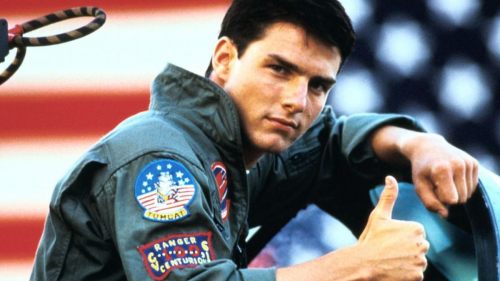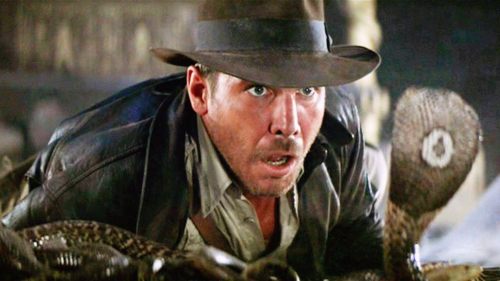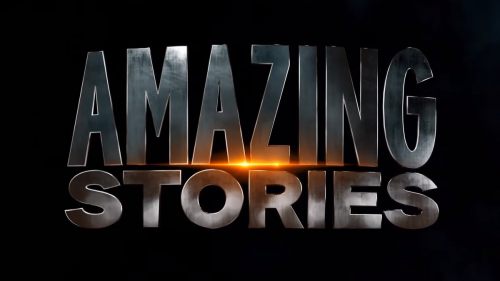Septemberg: Celebrating Our Greatest Living Filmmaker
I was recently at a party where I met a filmmaker I really admire. We chatted for a bit and then he pulled out his phone and showed me something that blew me away. He had screenshotted every single shot in Catch Me If You Can - one of Steven Spielberg’s lesser films, for sure, a middle-of-the-pack movie - and had charted out every camera move, every piece of blocking. These images had red and green arrows on them and showed the way Spielberg was carefully, subtly using his camera and the motion of the actors to bring us into the scene and to reverse our point of view in a way that most would never even notice. It was all choreographed perfectly, with actors moving directly on certain words, with the edit coming at a perfect pause.
It was so intricate and yet so subtle my mind was blown. “Was this on purpose?” was all I could ask (I was a little drunk). The amount of thought that went into this one exchange, a scene where Leonardo DiCaprio and Jennifer Garner simply talk in a dimly lit room, was astonishing. Brian De Palma calls coverage a dirty word, but we live in a world where most filmmakers get masters and over the shoulders and close-ups and figure it out in the edit. But of course Steven Spielberg isn’t most filmmakers.
That question, “Was this on purpose?” has become for me almost theological in its implications. Over the last few years my understanding of Spielberg has matured and changed, and over time I have come to one inescapable conclusion: Spielberg was born to cinema. More than any other filmmaker in the history of the medium, Steven Spielberg lives and breathes cinema, and I suspect that the stuff that we marveled over at this party came to Spielberg so naturally he barely even realizes he’s doing it. Which isn’t to take away from the enormity of his hard work and his skill, but rather is to emphasize the nature of this man’s unique and extraordinary genius. This is a language he simply speaks.
He’s always spoken it. Recently I had the rare chance to see one of his early TV movies projected; it’s a film called Something Evil that was made after Duel and before he made the jump to features. Something Evil has never had an official home video release, so getting to see it on film was a treat. I went in expecting to parse the film in order to find Spielberg’s touch - it was a quickie cheapo TV movie made to cash in on The Exorcist (the book! It was released before the movie) - but this early film is so much him as to be breathtaking. This TV movie had shots and sequences that would blow most modern horror films out of the water. The famed “Spielberg Face” was on display, but more than that Something Evil showcases a young filmmaker in total control - and it contains the clear and obvious visual seeds of stuff that would pop up a decade later in Poltergeist, a film Spielberg didn’t officially direct. It’s clear that Spielberg isn’t just a cinematic genius, he’s a savant, and his journey as a director has been about honing and focusing his enormous and totally natural abilities. You see a guy like Spielberg and you wonder what he would have been like if he had been born a hundred years earlier; how would a man born with celluloid in his system have expressed himself in a pre-cinema society?
My relationship with Spielberg has been complicated over the years. As a young film nerd I loved his work, grew up on his work. But as I hit my 20s I went through a period that might be familiar to other film nerds, a period where I mistrusted him and thought what he was doing was schlocky and manipulative and often obvious. Throughout the 90s I found myself on a rollercoaster when it came to Spielberg - I scoffed at his serious films, I loved Jurassic Park, I suffered through Hook, I was moved on a molecular level by Saving Private Ryan.
But in the last fifteen years I’ve had an awakening. It’s almost religious in nature, although there was no Damascan moment where I suddenly saw anew. It was a slow awakening, aided by the ubiquity of home video and a run of films that, for Spielberg, were lesser in nature. There was a point when I was watching War of the Worlds that I realized for any other filmmaker this was a career best. For Spielberg, at the time, it was received as a slight disappointment. A lot of people still complain about it and underrate it, but it’s an astonishing work of visceral reality, a searing examination of the nature of disaster made in the wake of disaster. Minority Report was another film that doesn’t rise to the ranks of Spielberg’s classics but is so much better than almost any other movie made by any other filmmaker that you have to laugh - this movie is Spielberg doing okay! This movie is his version of a solid double. Imagine being so good that a perfectly constructed thriller with a complicated moral argument is a double.
Spielberg is, simply, The Beatles of the movies. You don’t have to like his work (and I will look at you very suspiciously if you don’t) but to deny his influence is to admit ignorance. He bridges eras, with one foot in the classical filmmaking tradition of visionaries like John Ford (War Horse, another criminally slept-on Spielberg movie, is him taking a crack at making a Ford movie and I believe he pulls it off completely) while having another foot in the modern world of the blockbuster he and George Lucas created. He’s at once absolutely modern and absolutely classical, and with rare exceptions (cough, Kingdom of the Crystal Skull) every movie he makes feels not like a guy going through the motions but like an excited filmmaker stretching himself, doing something new or chasing something that interests him. Every new Spielberg is a treat, every new Spielberg is a revelation. He does it with an ease that is misleading and even leads to him being underrated - we live in an era where everybody flips out about 'long takes' or 'oners,' and yet Spielberg's name is rarely brought up in these conversations, despite having shot some of the best oners in the history of cinema. It's just that he does it so simply, with such facility, with such an eye to storytelling and unconscious effect that we often don't notice them unfolding before us. Even his bad movies - and Christ, he has the kind of stinkers only a genius could produce - are revelatory and interesting and worthy of dissection for anyone who cares at all about film.
We’ll be doing that all month during Septemberg. But a month to this guy feels like not enough - we’re lucky to be living at the time when he’s still releasing new films, and future film nerds are going to be in awe that we got to see a masterpiece (people will come around) like Lincoln on first run.
A personal epilogue here: I have met Steven Spielberg twice. Once was during the press junket for Minority Report, when I had the incredible opportunity to interview him in a roundtable setting, with four other journalists present. That small setting is unreal - I’ve been in plenty of press conferences with Spielberg, but getting this sort of access, sitting right next to him, was thrilling. You could actually talk to him. Anyway, I asked him about AI: Artificial Intelligence, and the controversy over the ending (which many people mistakenly think Spielberg tacked on, and which many people mistakenly think is happy). He broke into a huge smile. “I read the message boards,” he told me. He loved the debates. He thought Stanley Kubrick would have loved the debates, and he thought the arguments about the intention of the ending proved he had honored Kubrick’s vision.
The second time I met him was on the set of Indiana Jones and the Kingdom of the Crystal Skull. I was talking with the on-set publicist and she revealed something crazy - Spielberg reads all the geek sites. She told me that sometimes they had to pull him away from his computer to get to set. Normally I would have thought she was full of shit, but considering what he told me at Minority Report it all tracked.
Anyway, at the end of the little visit all the press lined up at the Amblin screening room and took turns telling Spielberg their name and he personalized a Comic-Con Crystal Skull teaser poster for them. I waited and got up to him and I said, “My name is Devin…” and was about to spell it when he interrupted me and said, “I know who you are.”
I’ve done a lot of cool stuff in this job, made a lot of amazing friends, seen things being shot that would set any film lover’s heart aflutter, met absolute living legends, but no moment in my career is going to match that one. I’m not given to hero worship or idolatry, but the idea that I was even on this guy’s radar in any sense shook me.
Just in case you’re reading, Steve, I hope you like what’s to come this month.



